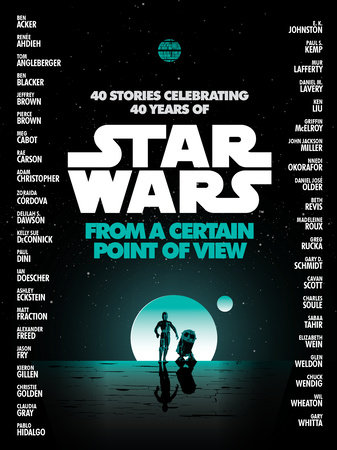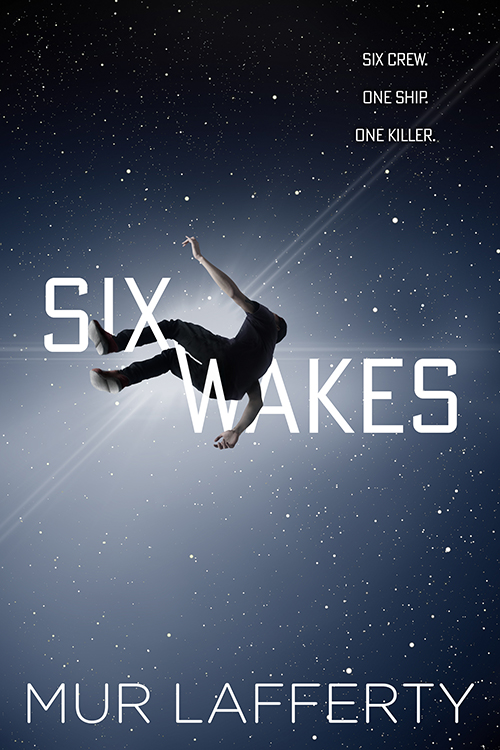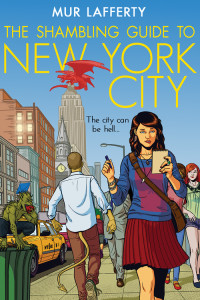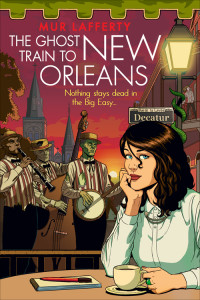written by Frank Dutkiewicz
It has been a very long time since we last appeared. A busy schedule and active life is our excuse. My apologies to Rahul Kanakia for pestering him for an interview, then dropping off the face of the Earth. I recommend that you all visit his blog (very interesting, entertaining, and insightful) and consider reading his latest book.
With much regrets, next month’s review (April) will be our last. I won’t be getting all gushy with you about it now. I’m saving that for my next review (need to fill up some space). But please take a gander of our thoughts of March’s tales, then visit go Daily SF and read them for your own amusement.
“Wedding Day” by Brian Trent (debut 3/3 and reviewed by Dustin Adams)
Because this story relies on its secret, a review is impossible without :spoilers:
Men from the future have come back to marry some of the most brilliant women of our time before an asteroid strike. This is a cool idea, but I had trouble with some inconsistencies, like why are they so hungry? And certainly the asteroid didn’t destroy the planet or there would be no future men to travel back.
I did like the story because of the details and the teasing that something unusual was going on, leading us on just enough to get hit with the hammer of the last line.
“Love is a Component of This Story” by Liz Argall (debut 3/4 and reviewed by Dustin Adams)
Indeed, the title sums up this story about the customs of a foreign people, and two volunteers being tested/examined with various sexually stimulating scenarios and machines.
Although I couldn’t exactly find a connection between the two concepts, nor a reason for the female character being named Bruce, (a constant distraction) I found the story fun and easy to read. And of course, being a romance, with a most unique path to the characters’ meeting, I felt the aww factor.
“Luna City, At Night” by Karl El-Koura (debut 3/5 and reviewed by Dustin Adams)
Hard-edged descriptors give this story its grim feel of a future gone mechanical (automatic, not robotic). A man, a future player if you will, finds and beds women who he assumes are interested in his wealth, (his silver watches, and bulging wallet). He seems to be a working man, yet has money to allow the women to steal, in the night, when he pretends to be asleep.
Interesting concept that he accepts the women’s thievery as payment for getting what he wants, but is he happy in his mundane world of repetition? Only after a woman doesn’t follow through with the expected, does the man begin to see the unexpected.
The price for survival is a long outstanding debt. “The Alien Tithe” by Eric Brown (debut 3/6 and reviewed by Frank D) is the tale of colonists who crash landed on their new home. The native aliens saved and healed the survivors of the disaster but have demanded a tithe for their good deed. The story follows along the trek of one the colonists as he leads his children to the aliens to pay for the debt.
“Alien Tithe” is a chilling tale. The gratitude the colonists had to their alien hosts has evolved into a yoke of guilt. I found this short tale to be intriguing and told well.
Recommended
Life goes on after the world is dead. “Through Dry Places, Seeking Rest” by Megan Arkenberg (debut 3/7 and reviewed by Frank D). Is the tale of a mute. Civilization has collapsed shortly after angels have appeared. The protagonist’s brother was murdered and now he wanders alone, seeking a running train while he walks the rotting planks and rusting rails that mark their mythical tracks.
The protagonist of this tale is a drifter with no place to go. He has lost the last person who ever meant a thing to him in a world without hope, a metaphor that proves fitting for “Through Dry Places” theme. The story, like the protagonist, simply drifts without much of a purpose.
Holes are filled in a popular fairy tale. “All Upon A Time” by Dani Atkinson (debut 3/10 and reviewed by Frank D) is a series of backstory narratives around the Cinderella tale.
Cute.
A stop at a coffee house will put you in just the right mood. “Surprise Me” by Andrew Knighton (debut 3/11 and reviewed by Frank D) is the tale of Yan, a counter worker at a coffee house with gift of pouring the emotion you need into your cup. A special girl, a customer who always orders ‘surprise me’ has been the object of his affection. He has brewed himself up some courage for her arrival but needy customers, and the fading effects of coffee, may sap the drink’s powers before he can ask her for a date.
“Surprise Me” is a tale of a boy trying to gather the nerve to express his feelings. It serves as a neat metaphor on the awkwardness of dating.
Yeast from the stars stumble upon a horrible world. “We Don’t Believe That They Are Friendly” by Sylvia Spruck Wrigley (debut 3/12 and reviewed by Frank D) is a report from a surveying crew of a yeast-based life form on their findings of an isolated world.
Fun piece.
“This Doesn’t Appear to Be the Alien I Paid For” by Andrea G. Stewart(debut 3/13 and reviewed by James Hanzelka)
Sir;
When my seven year old daughter asked for a pet I sensed an opportunity to teach her about the universe. After all I’d seen your ads everywhere, at work, watching holo, even while using the urinal. So we ordered the Plum eared Noggin offered in your catalogue. It arrived not in the seven days promised, but in 12; however I chalked this up to the fact that it had to travel half way across the universe. We immediately opened the package to ensure it arrived in good shape and were relieved to see the little heart monitor ticking along in time with the creatures beating heard. When the little fellow didn’t pupate within the two weeks as promised we made the first of our calls to your customer service department. They assured us that the pupation time can vary and we were relieved when a few weeks later the pupa was occupying the terrarium. However when the creature that emerged did not have cute pear shape ears as shown in your catalogue and had a red strip down its back a second call was made to your customer service. Unfortunately it would not be our last.
If you think dealing with earth-bound customer service desks can be trying, imagine dealing with one half ways across the known universe. That is exactly what this author imagined. He did an excellent job at it. This story is infused with a dry humor that really had me chuckling all the way through. Well Done, sir.
“The Sentence is Always Death” by Ken Gerber and Brian Hirt (debut 3/14 and reviewed by James Hanzelka)
I’m forty-three, well beyond needing a nanny, but nanny is in the audience like she always is. It’s fitting she should be there since I’m taking the rap for her. There are a few cases ahead of mine. “Case 1201, Miz Gravona,” the Judge says. The alien shuffles up front. “Miz Gravona, given your crime the sentence is death.” Of course it is, the sentence is always death.
This is an involved tale of happenstance, planning and criminality. The author envisions a future where an individual can be “erased”, removed from their own existence; then imagines the possibilities that future presents. It is fairly well written, but could have used some trimming in places. This overwriting tended to detract from the story a bit, but it’s still a piece worth reading.
A bulimic girl returns home with a tool to help. “Measures and Countermeasures” by Beth Cato (debut 3/17 and reviewed by Frank D) is the story of Colleen, a young woman whose eating disorder landed her in the hospital. Tonight is her first dinner, but she has smuggled in a piece of technology so she can keep her calorie intake low. If only her mother knew.
“Measures” is a story of trust. Colleen is like many girls with her disease, sure that the people that are trying to help her are against her. Ms Cato demonstrates trust runs deep. The ones truly in need have a small bit still in them that trusts we will do what is best for them.
A new god finds his first follower. “Produce 1:1-10″ by Mur Lafferty (debut 3/18 and reviewed by Frank D) is the tale of a lesser god and His flock of one. New gods have been springing up everywhere, spreading their word on things like the merits of exercise at the gym and such. The protagonist is an atheist who stumbles upon the god weeping at her local Piggly Wiggly. The prices of healthy food are too high and the labels are misleading. The new god of supermarkets needs an advocate to bring the truth to the masses.
A light hearted tale.
The dead cannot move into the next world while Death morns his loss. “Death and His Lover” by Getty Hesse (debut 3/19 and reviewed by Frank D) is a tale of the dark angel embracing the spirit of his lover. Death alone can open the Gates for the dead to travel beyond, but can’t bear to let his Jerome to leave. The din of the departed grows as they cry out to be released.
“Death” is a tale of closure. The angel knows too well the length of eternity and is unwilling to let his lover go. Touching.
The nanobots have come. “Goodnight, Raptor” by A. Merc Rustad (debut 3/20 and reviewed by Frank D) is the story of the end of the world. Little Benny alone survives the destruction tiny nanobots have done to house, town, and family. He managed to rescue his favorite possession, a picture book on dinosaurs. The final few bots have assembled to recreate the image on the books cover, giving Benny the thing he always wanted , his very own raptor friend.
“Goodnight, Raptor” is the tale of a child’s dreams. The enormity of the disaster has not registered in his innocent mind. The last of the destructive bots coalesced to form a talking dinosaur for Benny. The tale would be cute if it wasn’t so sad.
What we will do for love. “Because My Heart Is Pure” by Rahul Kanakia (debut 3/21 and reviewed by Frank D) is the story of a man who is perpetuating a lie for the man he loves. Lyle is a gay man who has been pretending to be pure of heart , a genetic mutation that has made them emotionally stagnant individuals. His boyfriend, James – a reckless, passionate, self-absorbed man , is the opposite of an even keeled pure heart. James attends orgies, disappears for stretches of time, but will only shack up with a pure heart. The emotional rift Lyle feels for James he must conceal or he will lose his eccentric lover forever. But can he continue to be something he is not?
“Because My Heart” is a story of sacrifice. The pure-hearted are people who feel neither highs nor lows. Passion is all but gone from their being. They are able to absorb insults and are impassive to feelings of envy and pettiness. The obtuse nature of a pure-heart is just what a selfish free-spirit like James needs. But Lyle isn’t a pure-heart. He forces his feelings down because he knows he will lose the man he loves if they come out.
A warning to readers who haven’t read this piece: heed the warning on adult content. A short segment of this tale could have been cut out of a Penthouse like forum of a gay magazine, very graphic. This story, although well-written, rolls out as a tale of man who is putting himself through needless torment. James is not just a bad-boy of the story, he’s worse. People are just playthings to him, and for a group of people who are as close to automatons as you can get, it is no wonder why he would seek out pure-hearts; all the fun of a superficial relationship with none of the consequences. The tale is a lesson on the hazards of succumbing to your desires. Some things just aren’t worth it.
A man recalls why he married his wife in the last moments of their lives. “Till Death” by L.L. Phelps (debut 3/24 and reviewed by Frank D) picks up during an impending disaster. The space station the married couple has lived on has been hit by a missile and is breaking apart as it falls back to Earth. The images of their wedding day fill his head as the reality of the disaster makes it clear that it is all about to end.
“Till Death” is the sweet niche in a sad tragedy. The story takes place during the horrible moments of a terrorist attack. The tale brought back memories of 9/11 for me and thoughts of what must have been going through the minds of the victims when it became clear that their end was near.
A chilling tale.
“The Signal” by Spencer Sandoval (debut 3/25 and reviewed by Frank D) is a journal entry written by a worker at a SETI observatory. The protagonist of this tale has simultaneous extraordinary events. News of another civilization very much like their own has been discovered and his first child that is on the way.
“The Signal” is a story I found compelling but not original. The ending has a twist that I have seen before.
A bid to overthrow the machine’s human masters can be accomplished for the low price of $99.99. “Robot’s Revenge” by Sylvia Spruck Wrigley (debut 3/26 and reviewed by Frank D) is another installment in Ms Wrigley’s Postmark Andromeda series. This one is a tongue-in-cheek look at the evolution of spam into an untapped market base.
Funny. My favorite of the series.
A dying boy is given the gift of a full life. “Gnostilgia” by Ronald D Ferguson (debut 3/27 and reviewed by Frank D) is the tale of 14 year old hero, Karl , the boy who helped prevent a massacre in his high school. His heroics have left him a death’s doorstep. His doctors have an experimental dream making machine. With it, they can give him memories of life he deserved.
“Gnostilgia” is a tale where Karl’s handlers struggle with what is ethical, and what is right. They know what they are doing would not be tolerated by Karl’s parents or with the public , implanting false memories into this boy’s head , but they know there is no hope for young Karl. The full they give him is their gratitude for sacrificing his own life.
A thought provoking and sweet work of flash.
Reincarnated lovers meet again in the segregated south. “Starcrossed” by M. Bennardo (debut 3/30 and reviewed by Frank D) is the tale of a young black waitress in a wartime navy town. In the back, a lone white man sits by himself. She recognizes him as someone she has met before, a forbidden lover of from a hundred previous lifetimes.
“Starcrossed” is a romance. The two characters are appropriately named Romeo and Juliet. For generations dating back thousands of years, the pair are destined to meet as people on different sides of the tracks. Their romances are always forbidden, customs of the times deeming them unfit to be together, and like Shakespeare’s play, always end in tragic finale.
Growing up, the past lives always seemed like a dream to Juliet, but when her Romeo appears, she can feel the pull of their destiny drawing them together. Unlike before, this time the pair is older, and Juliet has already started a life, with a family if her own. Her tale becomes a struggle; will an ordained desire drag her onto a familiar path? Or does she have an alternative choice.
“Starcrossed” is recreated and reworked look at a familiar trope. I found the story inventive, engaging, and well worth the read.
The world outside is falling apart in Light and Ash by Alan Bao (debut 3/31 and reviewed by Frank D), but for two romantic lovers, it might as well be another world. War rages in Asia but for a couple in New York, it is of little consequence. It is Christmas, and it is snowing, or is that ash?
A haunting tale.
 Rahul Kanakia
Rahul Kanakia
Our short-lived author spotlight of Daily Science Fiction‘s most prolific authors features an artist known for creating flawed protagonists. His much anticipated YA novel ENTER TITLE HERE is a story described as Gossip Girls meets House of Cards. We wanted to know a little more of what made him tick, so we asked him 3 questions that we drew out of a hat.
Do you have a favorite author of short fiction? A writer whose work we should sample at least once in our life?
Well, if we’re talking prescriptively, then no. Plenty of famous authors haven’t read Ulysses, and it’s no big deal. You gotta read what resonates with you. However, if we’re just talking about short story writers who’re really good and who I recommend highly, then I’d say that Borges is pretty worthwhile. He writes stories that are completely unlike anyone else’s. No one else could spin a long entirely-plotless story about a library that that contains all human knowledge. However, since most people have probably already heard of Borges then I’ll also note that Maureen McHugh’s After The Apocalypse is one of the best collections I’ve read in the past five years. I get chills even thinking about it. Her stories changed the way that I approach science fiction. Some of them are so beautifully subtle. I’m reminded, for instance, of the story “Useless Things,” which is about a woman living on an isolated ranch who has to deal with the unwanted reputation for kindness that she’s acquired amongst the migrants who’re traveling north in a future United States where life is just ever-so-slightly worse than it is now.
What do you consider to be your greatest accomplishment as an author?
Hmm. In a specific way, I think the best story I’ve ever written is forthcoming in a literary magazine called Birkensnake. It’s called “Sexual Cannibalism,” and it’s told in a series of vignettes as a young boy grows into a man and comes to terms with his sexuality while he researches the mating habits of praying mantises in a world that is wracked by and then overcomes the effects of climate change.
In a more general way, I’m not sure I could sum up my writing career that way. I guess the thing I’m most proud of as a writer is just being persistent. I just sold my first novel after writing and submitting for ten years. I’ve had years-long periods where I didn’t sell anything, or where I felt like I’d regressed, career-wise, but I just kept going. At times it didn’t really make sense, but I did anyway, and I owe a lot of gratitude to the version of me who could have quit, but didn’t.
Is there a Daily SF story you would like to recommend for us to read? Anything especially memorable?
Out of all the Daily SF stories that I’ve read, I’d say that I like Sarah Pinsker’s “Twenty Ways The Desert Could Kill You.” It’s playful and inventive and chilling work about a mother and a child who suddenly move to the desert in order to escape…something.
Rahul Kanakia’s debut novel, Enter Title Here, will be published by Disney-Hyperion in the fall of 2015. He has sold stories to Clarkesworld, the Intergalactic Medicine Show, Apex, Nature, and Lady Churchill’s Rosebud Wristlet. He holds an MFA in creative writing from the Johns Hopkins University Writing Seminars and a B.A. in Economics from Stanford, and he currently live in Oakland, CA. If you want to know more about him then please visit his blog at or follow him on Twitter

 From a Certain Point of View
From a Certain Point of View Six Wakes by Mur Lafferty is a science fiction mystery, one of the finalists for the Hugo Award for the Best Novel category of 2017.
Six Wakes by Mur Lafferty is a science fiction mystery, one of the finalists for the Hugo Award for the Best Novel category of 2017. Rahul Kanakia
Rahul Kanakia
 CARL SLAUGHTER: You’re one of the pioneers of podcasting.
CARL SLAUGHTER: You’re one of the pioneers of podcasting.  CARL SLAUGHTER: Who is the Princess Scientist, what are the science topics, and how mad is the science?
CARL SLAUGHTER: Who is the Princess Scientist, what are the science topics, and how mad is the science? CARL SLAUGHTER: Suppose someone wanted to launch a podcast. How much money would they need to raise? What would they need in the way of recording equipment and web resources? What would they need in terms of personnel?
CARL SLAUGHTER: Suppose someone wanted to launch a podcast. How much money would they need to raise? What would they need in the way of recording equipment and web resources? What would they need in terms of personnel?